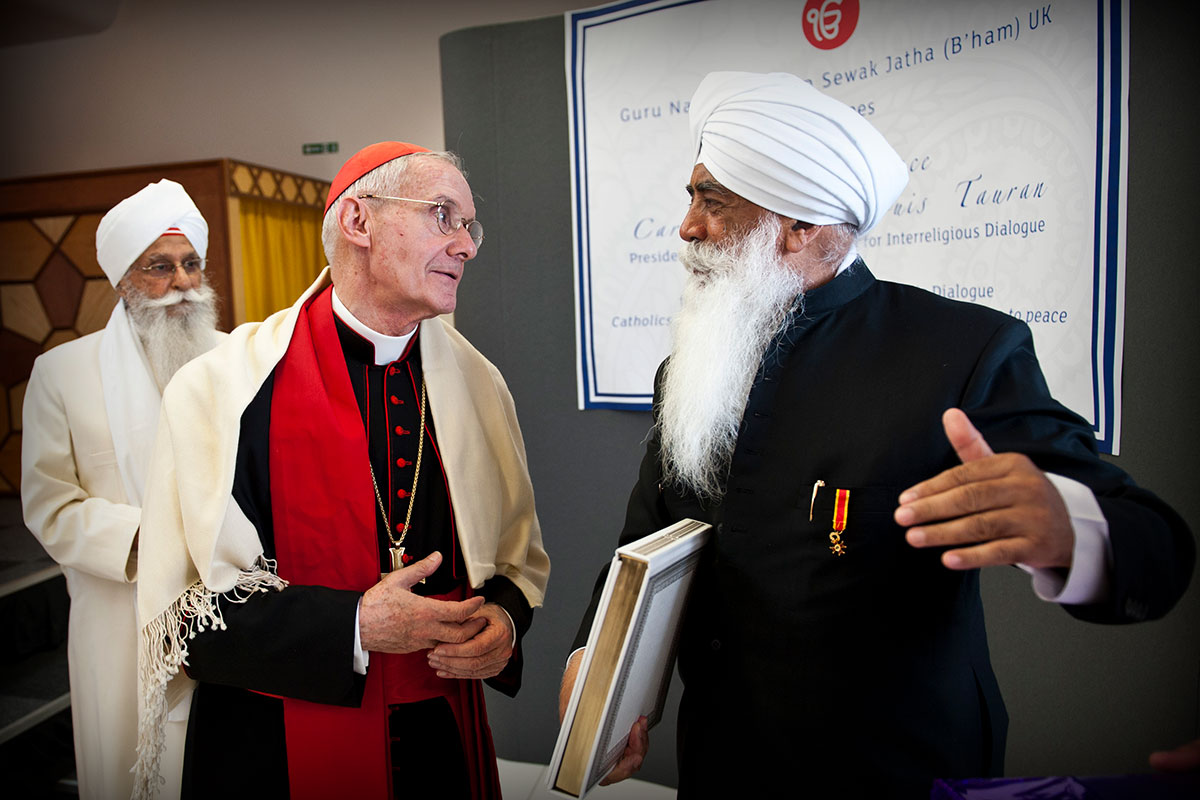Joaquim Magalhães de Castro
In the wake of the recent military crisis between Pakistan and India – which has once again rekindled the threat of a nuclear apocalypse – Sukhjinder Singh Randhawa, a Sikh MP, has urged Indian Prime Minister Narendra Modi to work with international organizations to begin a process of “adequate recognition” to find a city that can be presented as “a symbolic place of peace for humanity”. Amritsar, the holy city of Sikhism, near the border between India and Pakistan and home to the famous Golden Temple, is an ideal candidate for this purpose and should therefore be declared a “war-free zone” and receive international protection, as is the case with the Vatican.
The subject – clearly explained in an open letter written for this purpose – has a profound spiritual and national significance, since Amritsar is not only a strategic location in geopolitical terms but also serves as a “beacon of love and peace” for some thirty million people – the believers of the Sikh religion throughout the world. Furthermore, “its sacred aura” – recalls Sukhjinder Singh Randhawa – “transcends religious boundaries, offering comfort, unity and compassion in a world increasingly torn by conflict and division”.
One must remember that, for Sikhism, Amritsar has the same spiritual significance as Mecca has for Muslims and the Vatican for Catholics. Therefore, Sukhjinder Singh Randhawa “humbly requests” that the global spiritual significance of Amritsar be officially recognized and that appropriate international security mechanisms be adopted, similar to those that protect the Vatican. Randhawa notes that recent geopolitical tensions – especially along the border between northern India and northern Pakistan – have rekindled legitimate concerns about Amritsar’s potential vulnerability in the event of a military conflict. The appeal expressed in the letter is not a request for political sovereignty (like that enjoyed by Vatican City), but rather a request for international spiritual recognition and permanent security protection. “At a time marked by rising global tensions and increasing militarization of states, it is imperative that Amritsar be protected from the threat of war and violence, now and forever,” the parliamentarian said, evoking the universal teachings of the Guru Granth Sahib (the sacred text of Sikhism), which are based on peace, humility and brotherhood and represent “a powerful moral force against the rising tide of militarism in the world”. While many global powers are increasingly inclined towards conflict, the Sikh ethos of ‘Sarbat da Bhala’ (‘the welfare of all’) remains one of humanity’s last hopes for coexistence and peace. In the view of this MP, the concerns expressed by the Sikh community and civil society across India require a broader perspective, beyond regional circles and within an international context, “in order to ensure the security and sanctity of this venerated city in all circumstances”. Requesting the support of other MPs from all religious denominations, Randhawa urged the Indian Prime Minister to immediately take the necessary diplomatic and legislative steps to declare Amritsar a ‘war-free zone’ and a place recognised and respected by all, as it “carries within itself a message of peace and harmony for the entire planet”.
Earlier, during the pre-conclave and at the Mass inaugurating the pontificate of Leo XIV in Rome, Cardinal Oswald Gracias, Archbishop Emeritus of Bombay, recalled the words of the Holy Father in his first Regina Coeli: “I was happy to learn that there has been a ceasefire between India and Pakistan and I hope that, through the forthcoming negotiations, we will soon be able to reach a lasting agreement”. For Cardinal Gracias, the relationship between these two nations can only be cordial. After all, “we are brothers and sisters, we share the same culture, traditions, thoughts and feelings. This makes it even more important to sit down and look each other in the eye to try to resolve, through dialogue, the conflict in the Kashmir region, which we have suffered since independence.” The Kashmir issue is an old territorial dispute that has caused enough wars, pain and suffering. Today’s political leaders must have the courage to seek peace, a just and lasting peace. “We must put aside hatred, resentment and find an agreement for the good of our peoples and of all humanity,” said the Indian prelate of Portuguese descent. According to him, “a new war between the two nuclear powers could, in fact, have catastrophic consequences for the world.” Therefore, it is in the interest of the international community to propose and organize mediation, which seems necessary at this time and could involve great powers such as the United States and China or be led by international institutions such as the UN.
In the Kashmir conflict – Cardinal Gracias recalls – there is also “a religious factor” that has played a role from the beginning. “Kashmir is a Muslim-majority region and India is a Hindu-majority nation, an important factor in the historical, social and political process of the conflict.” But it is up to today’s political leaders to overcome religious nationalist tendencies and promote peace with realism. “And why not,” suggests Gracias, “the Holy See present itself as a ‘third’ actor. The Vatican could be among those facilitating dialogue and mediation on a religious level.”


 Follow
Follow


